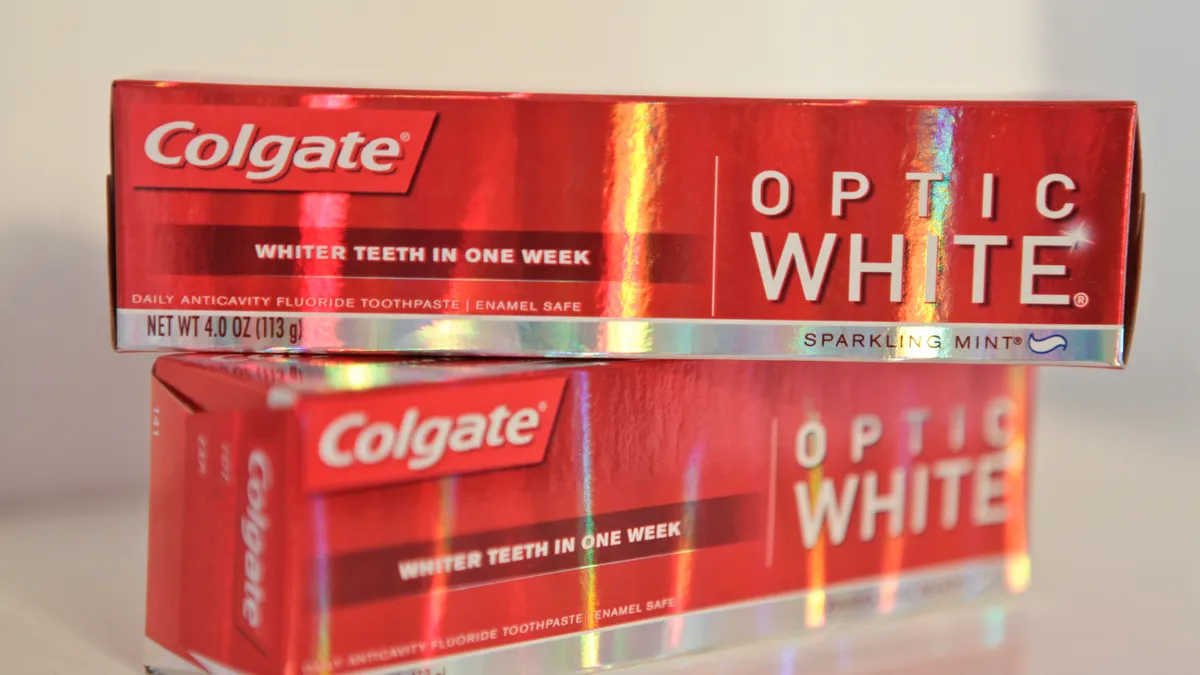Dive Brief:
- Colgate-Palmolive is facing "greater-than-expected" increases in raw material costs, CEO Noel Wallace said during the company's Q1 earnings call.
- Fats and oils are particularly affected. Costs for the category have already doubled since 2020, and executives expect them to rise by 60% YoY by the end of this year.
- "Given the inflation we are seeing this year, our spending in the second half on fats and oils will equal our spending on resins," Wallace said. Fats and oils and resins are the company's top two material spend categories.
Dive Insight:
Colgate is facing higher oil costs such as in palm oil, which is used in a variety of products. The company uses palm oil, palm kernel oil and palm oil derivatives in some of its soap products, toothpastes, antiperspirants, deodorants and household cleaners, according to the company's website.
Palm oil costs have been rising after Indonesia recently announced an export ban on the commodity late last month. The export ban is driving up the price of palm and other edible oils, with no clear means to relieve the pressure. Roughly 45 million metric tonnes of palm oil are produced in Indonesia, Paul Hughes, chief agricultural economist and director of research at S&P Global Commodities Insights told Food Dive.
In an effort to combat higher material costs, Colgate is "leveraging alternate materials" and "reformulating where that makes sense," among other tactics, Colgate CFO Stan Sutula said.
Colgate reformulated products during the relaunch of its pet food line Hill's Science Diet in 2018, John Faucher, chief investment relations officer, said in a December conference call. Other companies that have reformulated products in recent months are General Mills and P&G, using reformulated products to combat shortages of certain ingredients or materials.
Colgate-Palmolive expects costs for its raw material to continue to rise due to the ongoing war in Ukraine. "We have seen and expect to continue to see the war’s impact on the global economy and our business including, among other things, the cost of raw and packaging materials and commodities (including the price of oil) supply chain and logistics challenges and foreign currency volatility," according to the company's 10-Q.















